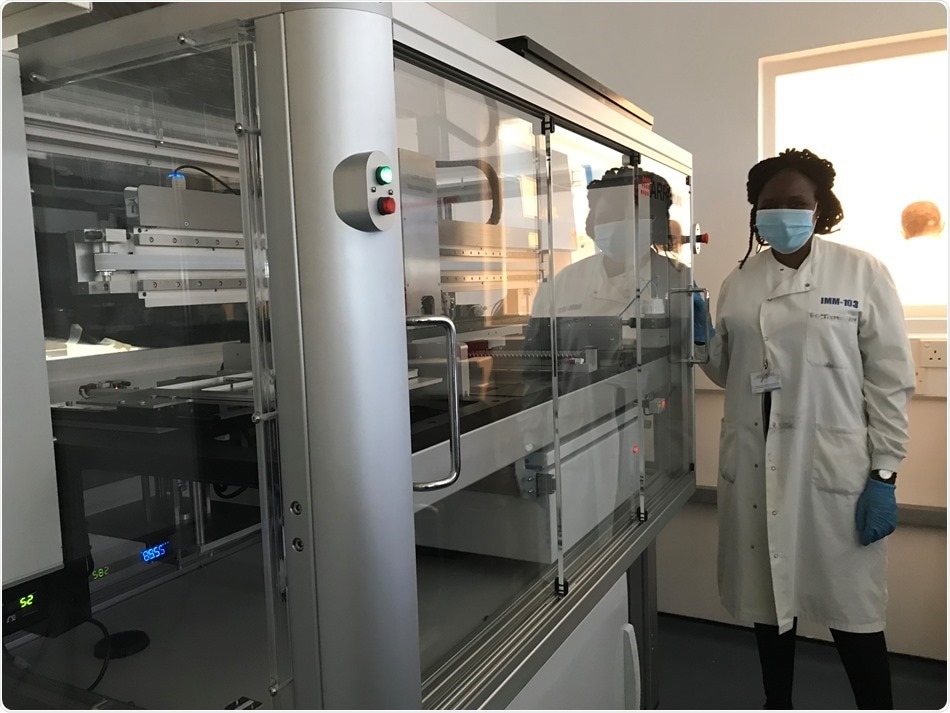The quest to develop effective malarial vaccines is now a step closer with Scottish bio-printer manufacturer Arrayjet, selected to work with a Kenyan-based medical research group to assist ongoing R&D trials that could lead to a vaccination immunization program to tackle malaria in less than two years.

Malarial proteins printed onto slides and produced by the Arrayjet Marathon - here operated by KEMRI’s Emily Chapsat. Image Credit: Arrayjet
The disease kills an estimated half a million people in Africa every year, most of whom are children under five years old.
Undertaking this research is The Kemri-Wellcome Trust based in Kilifi north-east of Mombasa – a partnership between KEMRI – The Kenyan Medical Research Institute, The Wellcome Trust and The University of Oxford.
To advance its research, The Kemri-Wellcome Trust is using Arrayjet’s microarray technology to print Malaria proteins onto slides. Human serum is then screened against every protein and an antibody-antigen profile generated for each sample. This gives Kemri-Wellcome Trust scientists an insight into which Malaria proteins would make the best vaccine targets, thereby significantly advancing their research.
For Arrayjet, a small Scottish life science company playing a key role in the continual development of anti-malarial vaccination, shows how critical our bioscience technologies are to the global health challenges faced by daily by millions of people. Kemri-Wellcome Trust has used our microarrayer technology in recent years but has upgraded this to help increase the high throughput of printed protein arrays. Moreover, we’re just please to be playing our role in unravelling the complexities of a highly contagious disease and this points to a new era of vaccinations being available to prevent malaria spreading as virulently as it does and of course, helping to save countless lives in the process.”
Iain McWilliam, CEO, Arrayjet
If the early and encouraging results from our current research findings are anything to go by, new malaria vaccines could soon become available. We know that vaccination is vitally important to help slow down infection rates and using Arrayjet’s technology to provide the necessary high-throughput of bio-printed microarrays has helped our research team tremendously in their aim to bring an end to the misery and suffering caused by malaria to millions of people every year.”
Faith Osler, Immunologist and leader of the research group, Kemri-Wellcome Trust